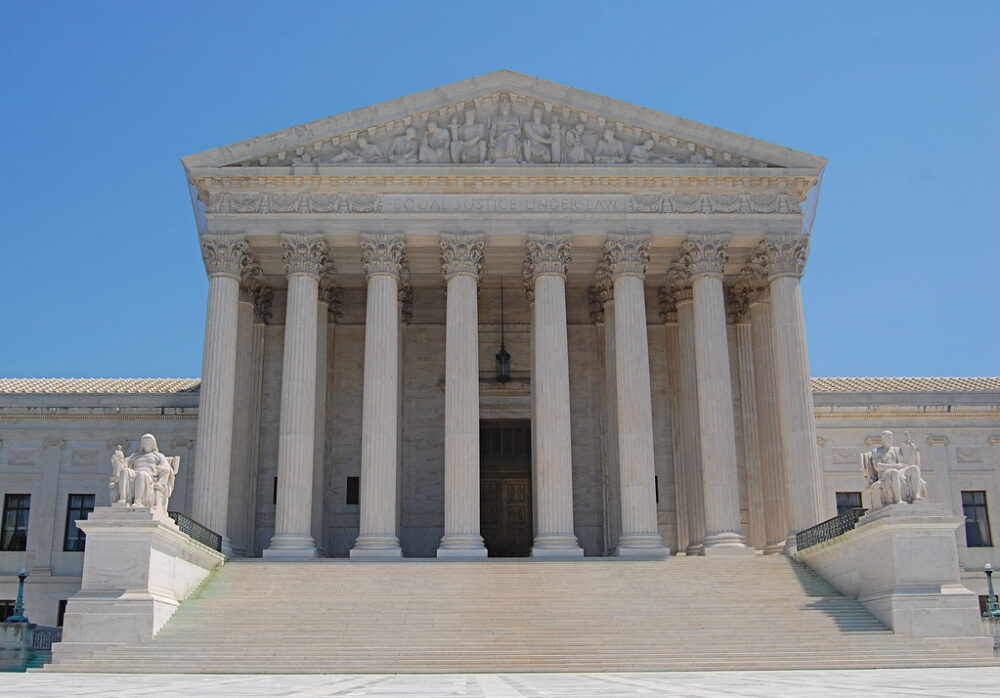
By Tyler Sonderholzer
On Jan. 27, Supreme Court Justice Stephen Breyer formally announced his retirement, most likely for political reasons and age, from the Supreme Court, meaning President Joe Biden had to nominate his replacement. Breyer has served since 1994 when he was nominated by then-President Bill Clinton after having served on the U.S. Court of Appeals for 14 years. On Friday, President Biden nominated District of Columbia Circuit Justice Ketanji Brown Jackson to replace Breyer.
Biden was expected to nominate a Black woman to the court to replace Breyer in late February, a pledge he made on the campaign trail. He made the pledge days before the South Carolina primaries, where Black people make up a large portion of the voters, following losses in the Iowa and New Hampshire primaries.
The court will remain at a 6-3 conservative majority as Breyer is classified to be in the liberal wing, which Jackson will also be a part of. If she is confirmed, the ideological makeup will remain the same but she will be able to serve on the Supreme Court for many more decades
Biden’s shortlist of replacements was U.S. Court of Appeals for the District of Columbia Circuit Justice Ketanji Brown Jackson, California Supreme Court Justice Leondra R. Kruger and South Carolina Federal District Court Justice J. Michelle Childs.
Jackson has served as federal trial court judge for eight years, confirmed by a voice vote in 2013, before being nominated for the U.S Court of Appeals as a trial judge, Jackson wrote more than 500 opinions and was nominated to the U.S. Court of Appeals last June. She was confirmed by the Senate 53-44 with three Republicans joining all Democrats.
Her most notable cases are ordering former President Trump’s White House counsel, Don McGahn, to appear before the House Judiciary Committee and ordering a congressional subpoena for White House records relating to the Jan. 6 insurrection.
Born in Washington D.C., Jackson moved to Miami shortly after where her father became the school board’s top lawyer and her mother became a school principal. She was a national oratory champion in high school and graduated with honors from Harvard College and Law School. Jackson clerked for three federal justices, including Breyer.
‘I’m pleased to nominate Judge Jackson,” Biden said during remarks at the White House, “who will bring extraordinary qualifications, deep experience and intellect, a rigorous judicial record to the Court.”
Biden also called Jackson extremely qualified and worthy of Breyer’s legacy of excellence and decency.
Jackson could pass without a single Senate Republican vote as Democrats control the 50-50 senate due to Vice President Kamala Harris holding the tie-breaking vote. In the past, there have been eight Republican senators that have voted for Biden’s judicial nominees and three Republicans, Senators Susan Collins, Lisa Murkowski and Lindsey Graham, that have supported more than 60% of the Biden nominees. If all three end up voting for the nominee, it will make a much smoother confirmation process and have a higher chance of Jackson being confirmed.
Collins, Murkowski and Graham all voted for Jackson for her current position, the only Republicans to do so.
If Jackson is confirmed, then it will solidify a liberal seat on the Supreme Court for decades to come in a conservative-leaning court.





